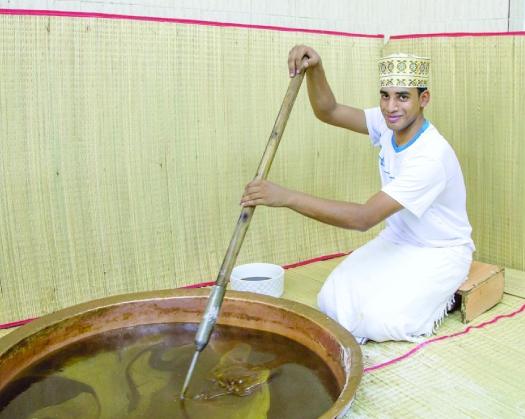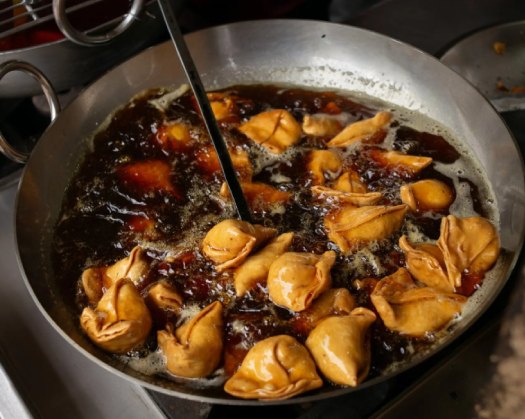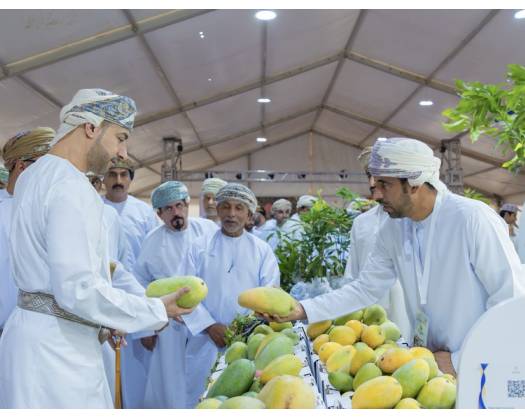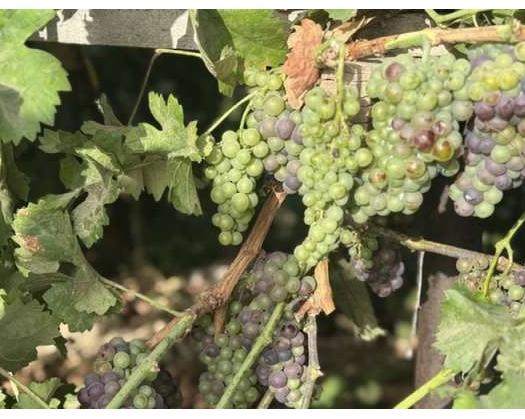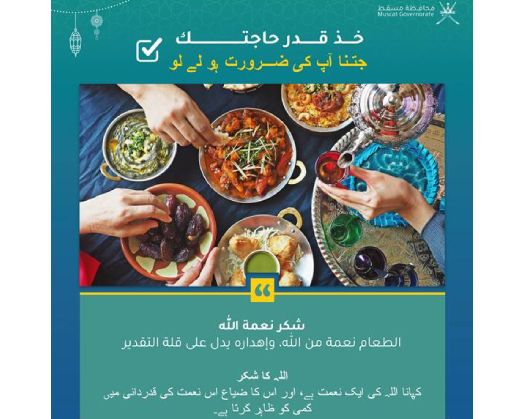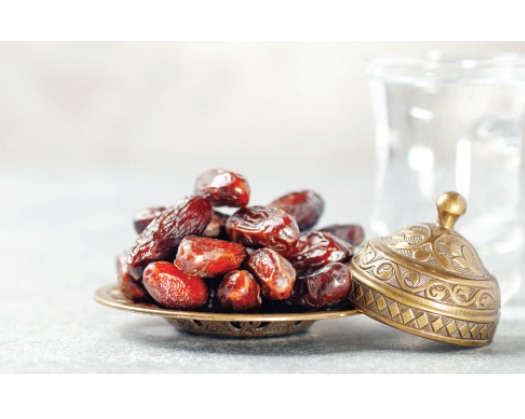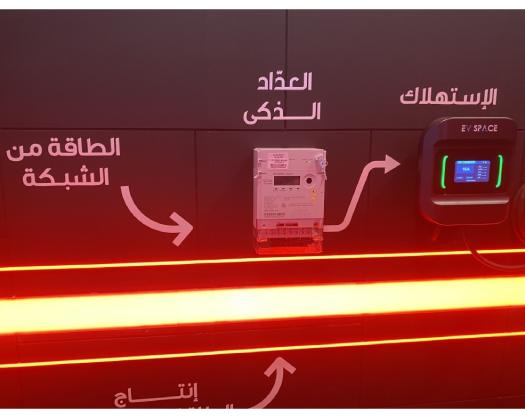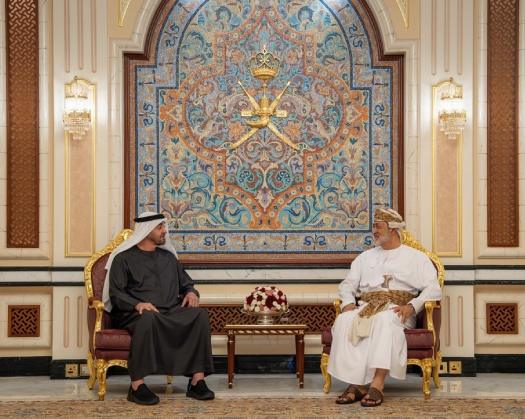During the festive season of Eid Al Fitr, Omani households are filled with the delightful aroma of traditional sweets, which hold great significance as symbols of celebration and happiness. Omani halwa, in particular, holds a special place on the Eid tables, representing a rich cultural heritage and providing a unique and delightful taste experience for both adults and children.
The Omani halwa industry has a long-standing tradition that has been passed down through generations for many years. Even today, this industry continues to thrive, with families inheriting the secrets of its preparation and keeping the tradition alive.
Made from pure and natural ingredients like starch, sugar, ghee, rose water, saffron, cardamom, and nuts, Omani halwa comes in a variety of flavors. From the dark sweets, which are called "black" due to their original light or dark brown color that doesn't reach the level of blackness, to the "date" sweets and the unique flavors of "frankincense" sweets, there are numerous distinctive varieties to choose from.
Omani halwa is not only enjoyed within the confines of homes but is also offered to guests on various occasions, especially during Eid Al Fitr. Omanis take pride in presenting it to visitors as a gesture of generosity, hospitality, and warm welcome into their homes.
The days of Eid witness a significant turnout at Omani halwa shops, as people flock to purchase different types of these delectable sweets. They are often chosen as special gifts for friends and relatives, serving as a heartfelt expression of congratulations and blessings.
.jpg)
The Omani halwa industry plays a vital role in boosting the national economy and creating employment opportunities for numerous Omanis. It holds great significance as a part of Oman's cultural heritage and contributes to the preservation of the national identity.
According to Yaqoub al Raisi, Omani halwa factories witness increased activity in the days leading up to Eid Al Fitr, as they are an integral part of Omani society's customs and traditions during this festive occasion. Omani citizens are particularly fond of purchasing Omani halwa due to its special significance in Omani hospitality, which has gained recognition at both regional and global levels.
Al Raisi further emphasized that in the two days preceding Eid, halwa shops are always bustling with customers who flock to buy Omani sweets to offer as a gesture of hospitality to their Eid guests.
Expressing his viewpoint, citizen Omar al Amri highlighted that Omani halwa adorns the tables of Omani families during Eid Al Fitr, adding a distinct flavor to this religious celebration and symbolizing the essence of hospitality and genuine generosity.
Umm Mohammad shared her annual tradition of purchasing various types of Omani sweets to present to guests and family members. She emphasized that no Omani household is complete without Omani halwa during holidays, as it has become a cultural practice to embellish the dessert table.
Furthermore, she mentioned the importance of exploring different shops across the Sultanate of Oman to buy Omani halwa, as each region offers its unique flavor, making the experience of Omani halwa truly exceptional.

